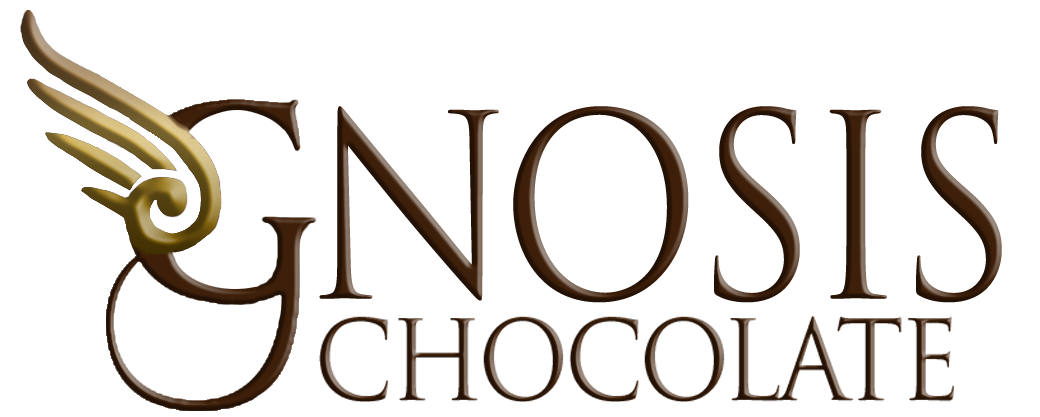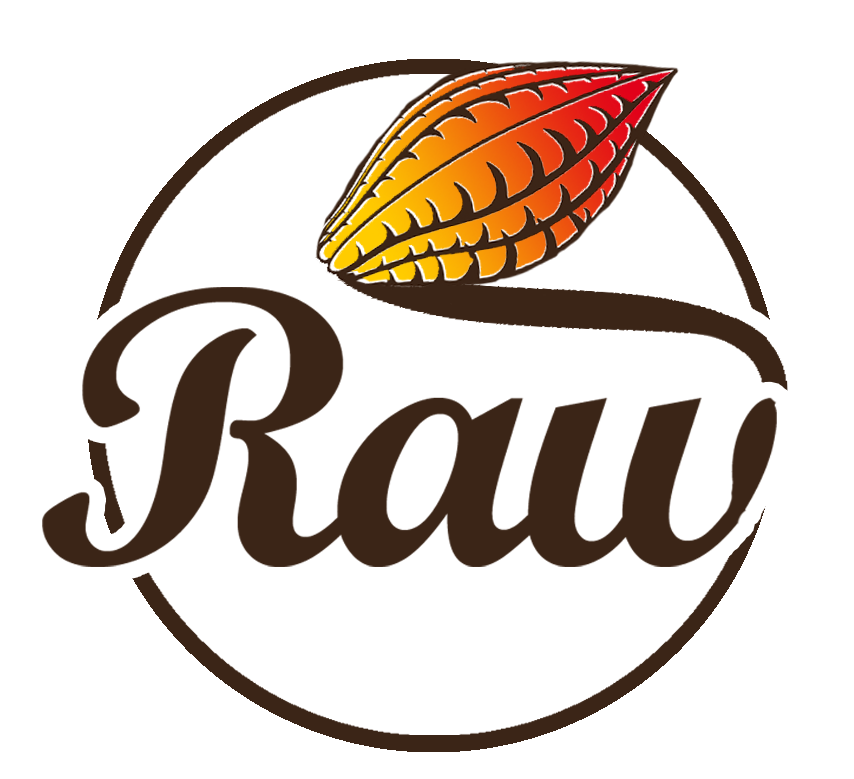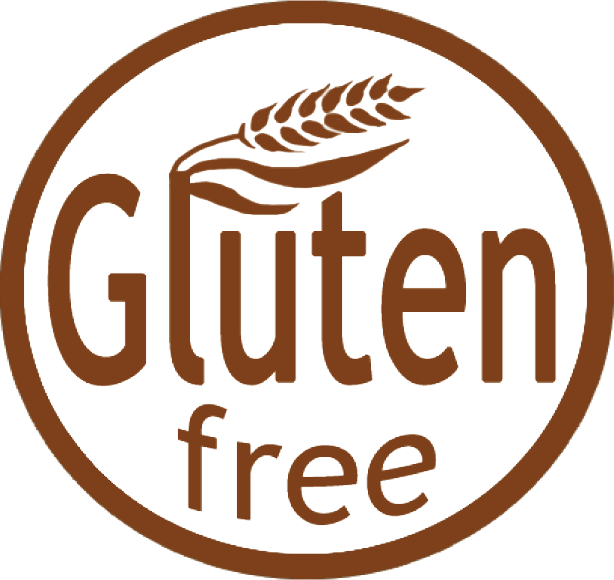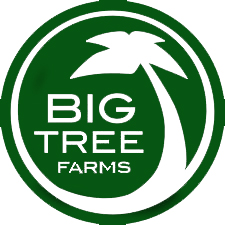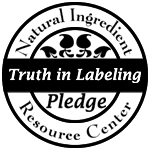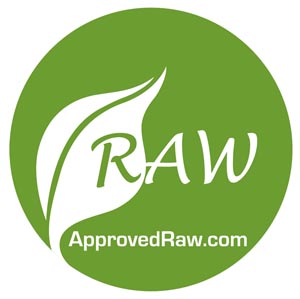Frequently Asked Questions
Nutrition Facts & Calories
click to view nutrition facts
Our chocolate is lower in calories, sugars, and fats ... and higher in antioxidants, neurortransmitters, and other nutrients than most chocolate bars on the market. We don't call it the World's Healthiest Chocolate for nothing!
By sweetening with coconut sugar instead of cane sugar, even diabetics do very well eating Gnosis products! Coconut sugar has a glycemic index of 35 vs cane sugar's 63, so our chocolate will not spike your blood sugar. In fact, the sugars from coconut palm release more slowly than in many fruits.
We do not add dairy to any of our products, which means they will not negatively impact your cholesterol as milk chocolate would. The fats in chocolate are the same ones found in coconuts, nuts, avocados, etc. (stearic acid, omega 9, and palmitic acid) and are known to actually reduce cholesterol.
We were shocked to learn that many companies generate their nutrition panels in PhotoShop. At Gnosis, we work directly with RL Food Testing to ensure the highest integrity in our nutrition fact panels!
But when using Nutrition Fact Panels to guide your dietary habits, please remember - a calorie is not just a calorie: http://www.prevention.com/weight-loss/weight-loss-tips/healthy-foods-boost-metabolism
Because my main interest is nurturing your health, I am 100% committed to putting a healthFUL product on the market - not just one without the UNhealthy ingredients.
Any calories in my bar are loaded with nutrients - vitamins, minerals, and neurotransmitters... that's why it is classified as a superfood.
Antioxidant ORAC levels per 100 grams
USDA / Journal of the American Chemical Society
- dark chocolate 13,120
- milk chocolate 6,740
- prunes 5,770
- raisins 2,830
- blueberries 2,400
- blackberries 2,036
- kale 1,770
“Not only were trans fats conspicuously absent from the fatty acid analyses, data on other lipids made no sense at all.
For example, safflower oil was listed as containing 14% linoleic acid when in fact it contained 80%; a sample of butter crackers was listed as containing 34% saturated fat when in fact it contained 78%.
In general, the NHANES II data base tended to minimize the amount of saturated fats in common foods.”
Certifications
We believe it is possible - as a team of producers and consumers - to create a shift in the marketplace by supporting high integrity organizations.
Certified Organic Gnosis Chocolate was proud to be certified by California Certified Organic Farmers (CCOF). CCOF is one of the highest integrity organic certification agencies that works with the USDA. By supporting the certification process, they promote organic food and agriculture, and have a trade association to boot! Read more about our Organic certification here! The fees were a bit high during the period our operations were paused, but we'll be getting recertified soon!
Certified Vegan Gnosis Chocolate is proud to be certified by Vegan Action. Vegan products do not contain any animal products, or products that have been tested on animals. Gnosis does not believe its products should harm any creature - and so using only vegan ingredients is fundamental. Also, this means our chocolate bars do not contain any dairy products like many others - therefore our bars are free of cholesterol and do not block antioxidants.
Certified Raw Gnosis Chocolate is proud to be certified by Approved Raw. This is a young and growing certification to verify that ingredients have not been heated over 118 degrees farenheit. This ensures the food is more nutritious, and closer to how it was intended by nature. In order to verify the Raw Integrity of our ingredients, Vanessa personally inspects the farms and facilities of as many ingredients as possible. See her Raw Integrity Project and Agave Report!
Certified FSC Gnosis Chocolate is proud to use packaging certified by the Forest Stewardship Council. The FSC ensures that the consumption of forest products of its certified companies is ethical and sustainable. Don't be fooled by a package that just says "Recyclable." Look for Recycled, Post-Consumer Recycled, FSC Certification, and Printed with Vegetable Inks. Read more about our Earth Friendly practices here!
Truth In Labeling Gnosis Chocolate is proud to have taken the Truth in Labeling Pledge. Due to the sad fact that the claim "Natural" holds no weight on most packaging, we have voluntarily taken the pledge to only use the word "Natural" as defined by the Natural Ingredient Resource Center guidelines. We have pledged to disclose when a product contains synthetic ingredients, such as fragrance oils or petrochemicals, in a way that is clear to the consumer.
Love Filled This symbol signifies that each product is made by hand with care for the producers, for you, for our environment, and for the future of our society. Although we do not hold Fair Trade Certification - we are beyond their standards. We work closely with our producers, and the farmers are paid ultra-premium rates for their goods. Our goal is not to simply turn a profit, but to create a shift in the global marketplace to products that are sustainable for our planet and health.
Gluten, Dairy, Soy, Peanuts & GMO
Gnosis Chocolate is completely free of dairy, free of soy, free of peanuts, free of gluten and free of GMOs and preservatives.
Our chocolate is handmade with love. We do not use large equipment and machinery which are used to process additional products containing gluten, dairy, or soy! :)
Learn more:
VegNews Magazine
Go Dairy Free
Gluten Free Living Magazine
Physician's Committee for Responsible Medicine
Cacao %
by Clay Gordon - author of Discover Chocolate and founder of The Chocolate Life
Is cocoa content really important? For years, the chocolate industry has been marketing the idea that 70% is a measure of chocolate quality. Chocolate isn't “good” unless it's 70% or more. Chocolate isn't “healthy” unless it's at least 70%.
The reality is a tad more complicated because the answer is very simple:
Cocoa content is a quantity measure, not a quality measure. The amount of cocoa in a bar of chocolate is not a reliable indicator of anything other than the amount of cocoa and sugar in the chocolate. Cocoa content refers to the total percentage, by weight, of all of the ingredients in the chocolate that come from the cocoa bean. That's all.
- Cocoa content is not a reliable indicator of the taste or texture of a chocolate
- Cocoa content is not a good indicator of the quality of a chocolate
- Cocoa content is not a useful indicator of the nutritional value of a chocolate
If the cocoa content of a chocolate is not an indicator of anything, then why use it? The answer, we suspect, is that the chocolate industry needed something easy to understand and promote in order to differentiate high-end chocolate from mass-market chocolate. There are lots of rating systems that use numbers as quality indicators (wine is a good example), so it was easy (though wrong) to take the cocoa content of a chocolate and base promotional campaigns around a simple number: and 70% was the number that was chosen, in part because, coincidentally, there were a lot of 70% chocolate bars on the market.
Reading the ingredients label - making sure it does not contain anything but highly nutritious ingredients and NO dairy, refined sugar, soy, etc - is more important than cocoa percentage when it comes to determining the flavor and quality of a chocolate.
Absolute percentage of cocoa content is also not an indicator of the “healthiness” of a chocolate. Almost everything that is done to improve the taste and texture of a "cooked" chocolate is done at the expense of the compounds in the chocolate that make it healthier for you. Healthier chocolates are ones that have been minimally processed - like raw chocolate.
One of the most challenging aspects of creating a healthier chocolate is not in getting the cocoa percentage above 70%. The challenge is deciding on the ingredients and sweetener to use and to understand how the taste and physical properties of the sweetener affects the nutritional value and texture of the chocolate.
Caffeine?
There is a persistent urban legend that Chocolate contains lots of caffeine. It seems that this rumor is based primarily on a confusion between two similar alkaloids: Caffeine and Theobromine. Theobromine is the active ingredient in Chocolate and it occurs only in Cacao. The two stimulants are related and have a similar structures, but are very different chemicals with different properties, effects and origins. There are of course, some Chocolate products that have added caffeine, but it does not occur naturally in Chocolate.
In laboratories, all methylxanthines (the family which both caffeine and theobromine are in) are often not differentiated in tests - which may be a reason for these rumors. Theobromine has diuretic, stimulant and relaxing effects, and can lower the blood pressure by dilating the blood vessels. Theobromine has stimulant properties, similar to caffeine.
However unlike caffeine, theobromine does not affect the central nervous system but instead stimulates the cardiovascular system. Theobromine can also relax bronchi muscles in the lungs and can be used as cough medicine - studies indicate that theobromine acts on the vagus nerve, which runs from the lungs to the brain.
A typical sample of cacao nibs or cacao beans will yield anywhere from zero caffeine to 1,000 parts per million of caffeine (less than 1/20th of the caffeine present in coffee). In February 2008, Dr. Gabriel Cousens discovered in clinical tests on healthy people that Cacao does not elevate blood sugar in the same way as a caffeine-containing food or beverage. In fact, Dr. Cousens found that cacao has less of an effect on blood sugar than nearly any other food.2 A whole bar of Gnosis Chocolate contains about the same caffeine as a whole cup of decaf coffee!
Sources:
1. http://www.xocoatl.org/caffeine.htm
2. http://www.sunfood.com/b2c/ecom/ecomEnduser/items/xt_itemDetailNF.aspx?siteId=1&itemNum=0878
Interesting Study
http://www.phytochemicals.info/phytochemicals/theobromine.php
Due to some controversy on the health benefits of agave, I visited the source of our agave in Guadalajara, Mexico to do quality assurance. I am so glad that I visited! I found that our source has amazing social and environmental ethics, and their processing involves no added ingredients or heating over 118 degrees.
I highly approve of our source and have posted a report on my Adventure with Agave - including my visit and reasons for using this sweetener in my AGAVE REPORT
To those who would like to avoid agave, all our products are now sweetened with coconut sugar except some of our truffles (agave), and our Freedom Bar (stevia)
We will be launching more products with alternative sweeteners. To learn of these launches, sign up for our ChocoLetter! We are also more than happy to create Custom Chocolates with any sweetener you would like!
More Information on Agave:
- Here is a full response from Hendrik Rabbie who can help you set up a visit to IMAG.
- Here is a great blog from an unbiased source
- Here is an article that goes into wonderful depth fructose and this entire controversy
- Here is a blog from the owner of Coconut Bliss who also visited his agave source
- Here is a blog from Madhava Agave (not our source but the post demystifies a lot!)
Coconut Sugar?
Coconut Sugar, also known as Coconut Palm Sugar or Palm Nectar, is nectar that drips from the flowers of the Coconut (Coco Nucifera) Tree.
Coconut Sugar delivers a rich storehouse of nutrients: B vitamins and minerals, including phosphorous, potassium, protein, magnesium, and calcium.
Coconut Sugar has a glycemic index of 35 (compared to honey at 55 or cane sugar at 68), and a low fructose content. This low sugar impact is very beneficial for anyone trying to watch their blood sugar - whether a Type I or Type II diabetic, managing weight gain, or just wanting to avoid the “highs and crashes” of sugars!
Cocos Nucifera trees yield 50-75% more sugar per acre than sugar cane and use 1/5th the soil nutrients and water – and can produce nectar (then granulated into sugar) and coconuts for water and meat simultaneously, thus making it an incredibly sustainable crop. In fact, The UN’s Food & Agriculture Organization called sugar the world’s “most sustainable sweetener.”
The Coconut Sugar we use is harvested on the island of Java by Big Tree Farms - a company that works directly with over 13,000 farmers and has raised the bar for integrity in the organic food movement.
